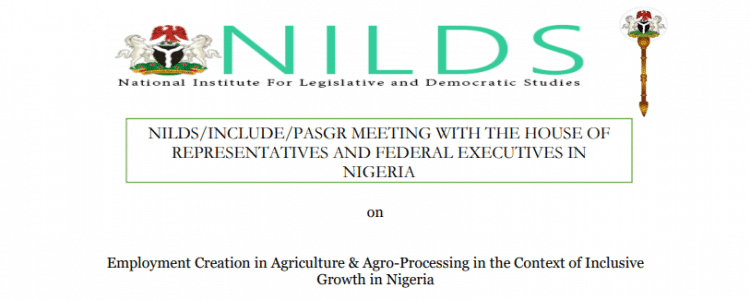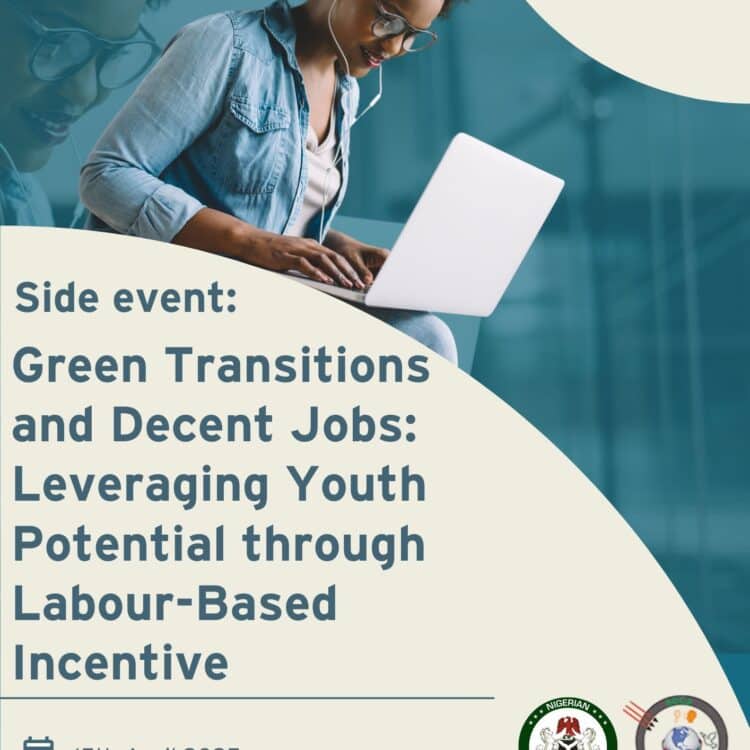
On the 25 and 26 April 2017, the Nigerian Institute for Legislative Studies (NILS) in collaboration with The Partnership for African Social and Governance Research (PASGR) and the Dutch Knowledge Platform on Inclusive Development (INCLUDE) organized a dialogue on employment creation in agriculture and agro-processing value chain Nigeria. The first day brought together 50 legislators while the second day involved 30 stakeholders including representatives from the Central Bank of Nigeria, Ministry of Agriculture and Rural Development, Ministry of Youth and Sport, National Directorate of Employment, the academia, agriculture and agro-processing industries, and international civil society organisations.
The objective of the dialogue was to discuss the research findings with the legislators and executive members of the government and to encourage then to use the study recommendations for policy making and implementation. During the dialogues, three presentations were made and from the discussions, the stakeholders resolved to promote employment and inclusiveness in the agriculture value chain through the following.
- Legislators and other policy makers to address the challenges of wage discrimination identified against women in the rice value chain.
- Government agencies to provide support for the cotton-textile value chain to achieve similar steady progress recorded in the rice value chain.
- Facilitate establishment of value chain clusters based on geographical location to address fragmentation, improve productivity to create spin offs and benefit from synergy among actors.
- Government to provide financial resources to facilitate the transformation of agriculture and agro processing to a highly lucrative venture which will attract private investment and boost employment creation.
- There is need for the government to close the wide gap between budgeted figures and cashed-backed (implementation) in the Agricultural sector.
Read the entire report here.




